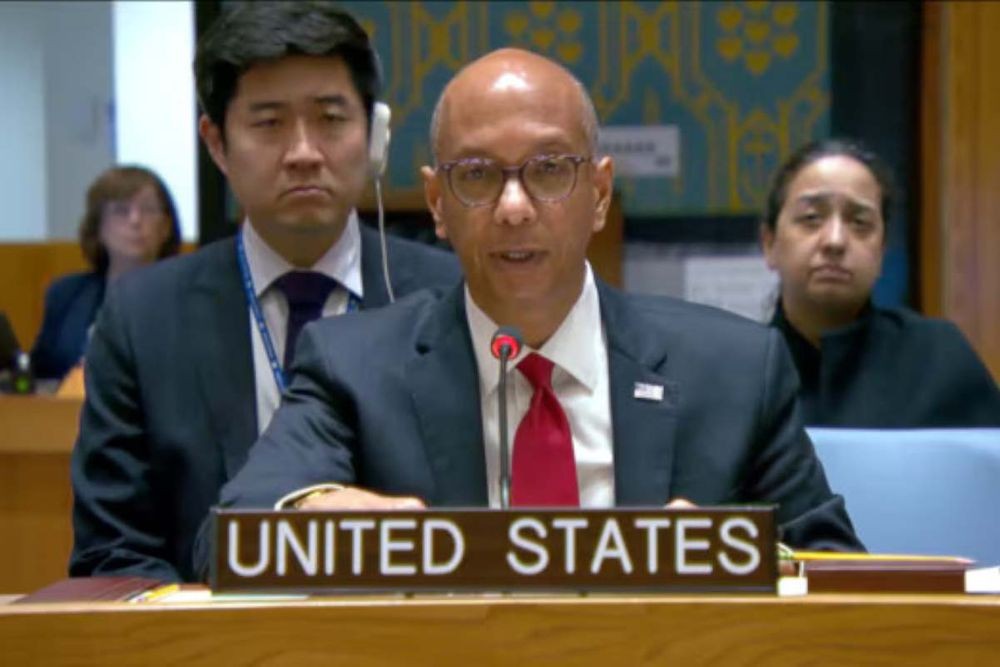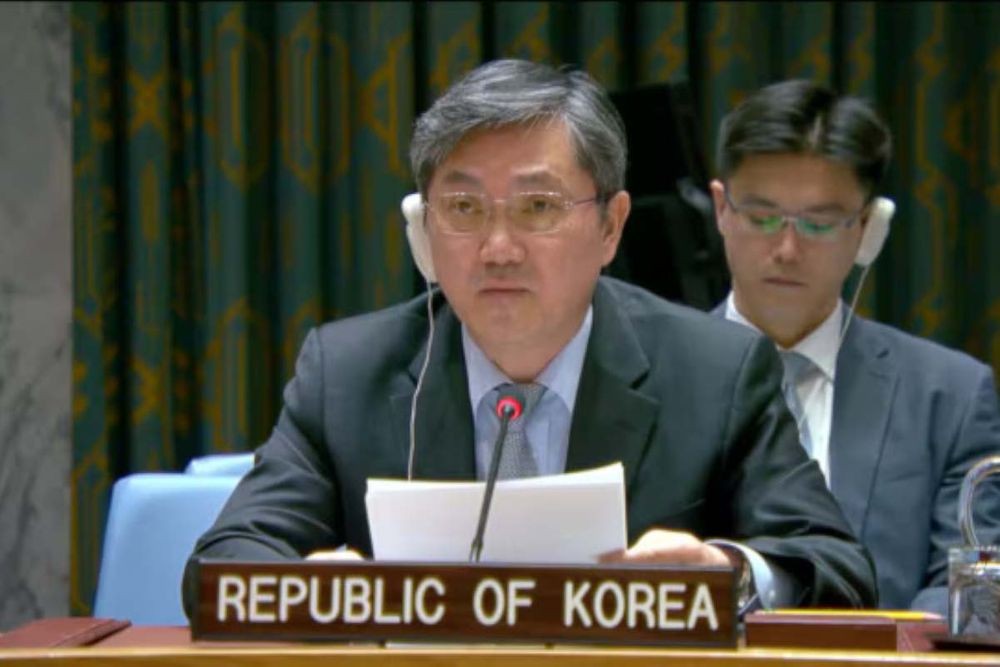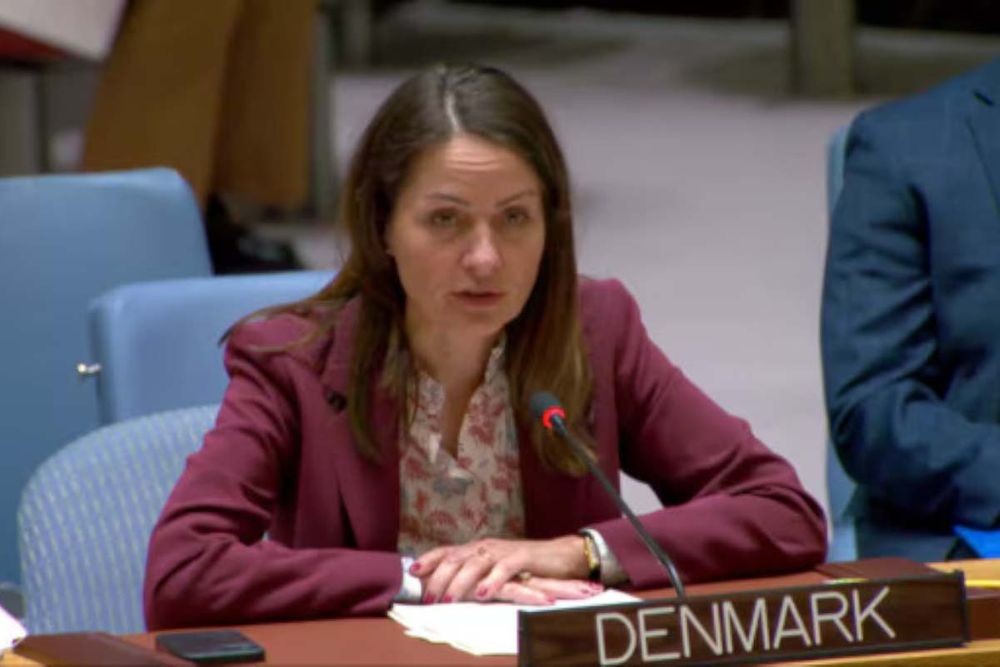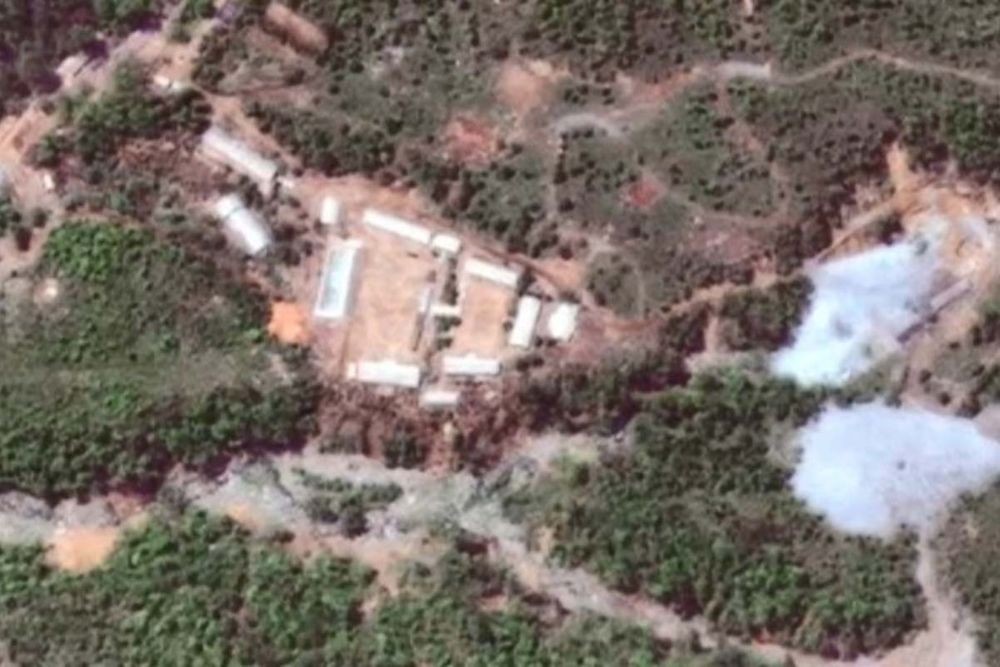
On April 11th, Robert Wood, the U.S. Deputy Representative to the UN, criticized the weapons trade between North Korea and Russia during a meeting of the UN Security Council.
Wood stated in a meeting themed on Peace and Security in Ukraine that “Russia is blatantly procuring ballistic missiles and other weapons from North Korea, violating UN Security Council resolutions.”
Wood pointed out, “Russia has chosen to obstruct the work of the Security Council by using its veto power to avoid mounting evidence against them.”
Last month, on March 28th, the Security Council held a meeting to extend the term of the North Korea Sanctions Committee, also known as the 1718 Committee’s panel of experts, until the end of April 2025. However, Russia vetoed the resolution, drawing criticism for disrupting international peace.
Wood added, “Russia’s use of its veto power clearly shows that it has no interest in international peace and security.”

South Korean Deputy Ambassador to the UN, Kim Sang Jin, also pointed out in the meeting that Russia and North Korea are intensifying their attacks on Ukrainians through illegal military cooperation.
Kim stated, “North Korea is supplying ammunition and ballistic missiles to Russia, which is a clear violation of numerous Security Council resolutions.” He added, “Russia’s veto against the resolution to continue the mission of the UN panel of experts on North Korea sanctions indicates that they do not want the panel to investigate these weapons trades. This is a very disappointing behavior.”
The European Union’s Deputy Representative to the UN, Jean-Noel Radua, urged North Korea and Russia to implement UN Security Council resolutions for international peace properly.
Radua reminded that UN Security Council resolutions prohibit North Korea from exporting or importing any weapons and described the attitude of North Korea and Russia as incomprehensible.
In addition, the deputy representative urged Iran and Belarus, who are also supplying various weapons and military equipment, including missiles and drones, to Russia, to stop their actions immediately.
Representing the three Baltic states (Lithuania, Estonia, and Latvia), Lithuanian Ambassador to the UN, Rytis Paulauskas, also strongly criticized Russia for using its veto power to continue illegal activities, just like other countries.

Speaking on behalf of the Nordic Five (Denmark, Sweden, Norway, Finland, and Iceland), Danish Ambassador to the UN, Christina Lassen, emphasized, “We join the international community in condemning North Korea, Iran, and Belarus, who are supporting Russia’s illegal invasion war against Ukraine by providing weapons and ammunition.”
The meeting was also a significant issue in hearing Russia’s position. Still, Russia reiterated its previous position, “Let’s maintain and operate the North Korean sanctions themselves, not the panel of experts, for a year.” However, Russia’s ambassador to the UN, Vasily Nebenzya, did not show a direct response to the intense criticism of the Western countries and South Korea on the Security Council’s veto and the North Korea-Russia military weapons trade.
Previously, Russia claimed that “It is clear that the UN Security Council can no longer use outdated regulations on the Korean Peninsula issue” and argued that “the termination of the activities of the UN panel of experts related to North Korea sanctions is the responsibility of the West.”
Regarding the suspicion of weapons trade with North Korea, Russia explained, “In principle, all of these are groundless, and there is no specific content.” North Korea also consistently denies the fact of weapons trade with Russia.
North Korea also sided with Russia at the meeting, saying, “We are very grateful.” North Korean Ambassador to the UN, Kim Song, criticized the North Korean sanctions panel, saying, “The sanctions resolution implemented by the Security Council is nothing but a product of the wicked hostile policy of the United States and its alliance trying to trample on North Korea’s sovereignty, development potential, and right to survive.”
In the meantime, the International Institute for Strategic Studies, a U.S. think tank, confirmed that snow was removed on the road to the 3rd tunnel of the nuclear test site in Punggye-ri, North Hamgyong Province, through satellite image analysis. This suggests that low-level activities are continuing inside the tunnel. It also analyzed that North Korea’s movements are focused on maintaining the overall status of the nuclear test facilities already prepared for the reactivation of at least the third tunnel. No special activities were observed in the collapsed 1st, 2nd, and 4th tunnels among the nuclear test sites owned by North Korea. 
South Korean and U.S. authorities are closely watching Punggye-ri’s third tunnel as a likely test site if North Korea conducts a seventh nuclear test.
However, experts assessed that such activities do not mean that North Korea’s seventh nuclear test is imminent.










Most Commented